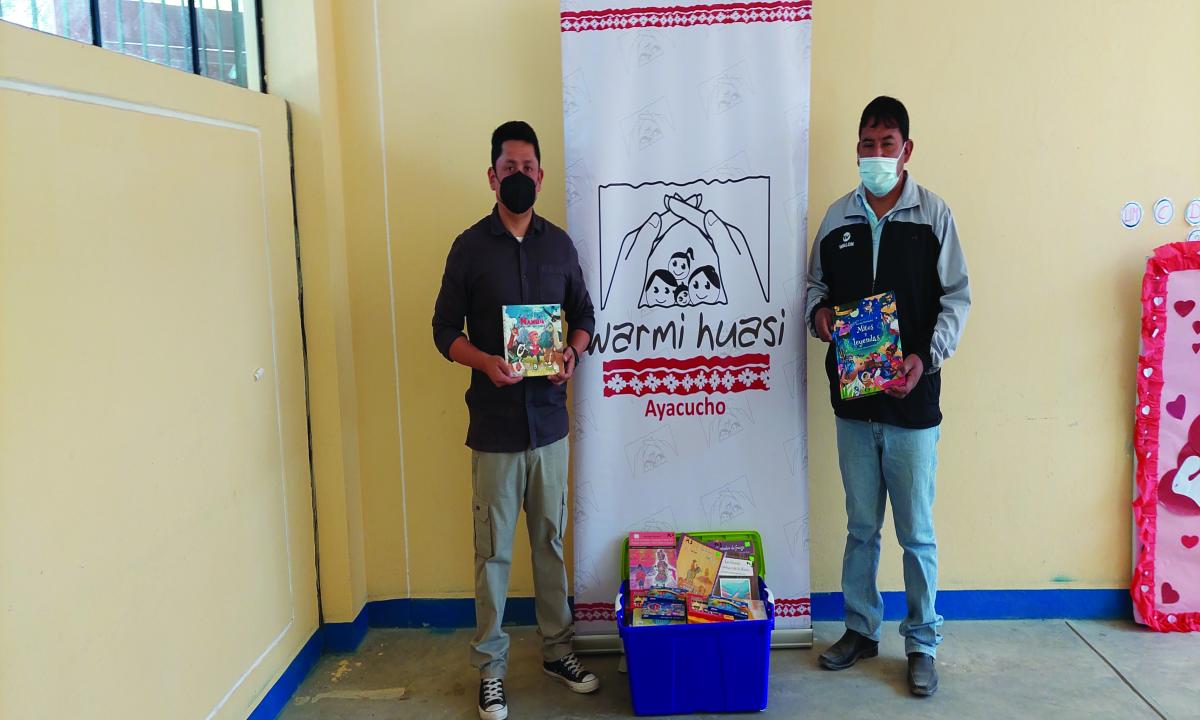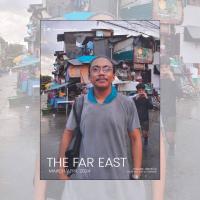 Jesus Pimentel Moscoso School in Pausa (the provincial capital), Peru. Sixty-five children attend this school each day. - Photo: Fr Ed O'Connell
Jesus Pimentel Moscoso School in Pausa (the provincial capital), Peru. Sixty-five children attend this school each day. - Photo: Fr Ed O'Connell
Warmi Huasi means “Women’s House” in Quichua, but “Space” would describe it better. It offers a space for people to grow.
Warmi Huasi is a small non-government organisation (NGO) founded in 2003 in Lima, Peru, by three Columbans: John Hegerty, Bernie Lane, myself, and three laywomen professionals: Milka Rosas, Nancy Moreno, and Estela Cisneros. Our initial goal was to accompany families living in poverty. But over the years, our work has evolved into empowering young people at risk in the municipal districts of North Lima and Paucar del Sara Sara Province in the Department of Ayacucho so that they become protagonists in improving the quality of their lives and that of their communities. As well as working with children and adolescents, we work with parents, local leaders, municipal and government officials and other NGOs to support young people achieve their dreams. Next year (2023), we will celebrate 20 years of this work.
Warmi Huasi began as a pastoral outreach program of the parish of Our Lady of the Missions, a Columban parish on the northern side of Lima, where I was the parish priest. The parish had developed a strategic plan that included health and non-violence programs supporting families in the parish. With the support of CAFOD (Catholic Fund for Overseas Development of the Bishops of England and Wales), the parish was able to employ a social worker and a health professional and soon developed a team of volunteers from our twelve communities. After three years of working with families in the parish, we decided in 2006 that it was time to go further afield to where the need was more acute.
This work coincided with my social responsibility work in the diocese of Carabayllo (North Lima). In 2006, as part of a fact-finding mission on behalf of the Truth and Reconciliation Commission, I visited Lomas de Carabayllo, some twenty miles north of the parish, along with the Coordinator of the Government’s Human Rights Office in North Lima. We wanted to meet the people displaced by the violence in Peru during the 1980s and 1990s. This was how I got my first look at San Benito, the largest of the townships in Lomas de Carabayllo, where many lived in extreme poverty. People from the interior of the country had been caught in the crossfire between terrorists and the excesses of the military response, which meant many had moved from the countryside to the cities, especially the capital, Lima.
The social and health workers and two of the professional women of Warmi Huasi’s Board, along with personnel of the Government’s Human Rights Office, had been trained by Truth and Reconciliation Commission staff to interview displaced people. The Commission needed to hear what had happened to them and their families during the years of terrorism. The findings contributed in a small way to the Truth and Reconciliation Commission’s final report.
San Benito as a settlement began in the nineties in the foothills of the Andes, on the extreme northern side of Lima. By the time we arrived, it had developed into a township with a population of over 12,000 people. In helping interview the displaced in San Benito, we were moved by the plight of the people. As a result, we visited San Benito in 2006 and 2007 with health delegates from the parish of Our Lady of the Missions. After this initial contact, later in 2007, we consulted the local parish priest and community leaders, and together, decided to undertake two projects that responded to the needs of the families: malnutrition of young children and family violence. These projects, supported by CAFOD and Misean Cara (Ireland), were carried out from 2008 to 2010.
 Lalo (left) delivers a basquet of books to the teacher at Warmi Huasi for the 30 children in the village. - Photo: Fr Ed O'Connell
Lalo (left) delivers a basquet of books to the teacher at Warmi Huasi for the 30 children in the village. - Photo: Fr Ed O'Connell
Over these three years, we got to know the community well, especially the mothers and local leaders in the townships. Towards the end of 2010, we evaluated our work with the community and then consulted them on what would be the most important need to tackle over the next three years. What we heard back, especially from the women, was the same, time and time again: “The children, the young children, we have to do something about the children. They are at risk.”
The women explained that in San Benito there were many families where the mother was the main breadwinner or the father worked far from home. Every day, these women had to go out to make enough money to cover basic needs, resulting in their children being left alone to fend for themselves and even some left to look after younger siblings by themselves.
The risks faced by the children were fivefold:
- Accidents either at home or in the rocky hillside that is their neighbourhood.
- Poor health due to inadequate diets and lack of adult supervision in the preparation of meals.
- Poor school results with no one to help with homework or no time to do homework.
- No time for play and no safe places in which to play.
- Facing violent situations of all types: physical, psychological and, sadly, sexual abuse.
Where were we to start in this effort to accompany working mothers in reducing the risks faced by their children?
TO BE CONTINUED...
Columban Fr Ed O’Connell lives and works in Peru.
Listen to "The beginnings of Warmi Huasi"
Related links
- Read more from The Far East - January/February 2023

